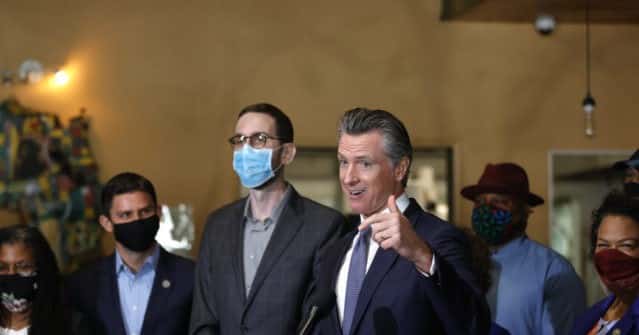California Gov. Gavin Newsom (D) and other state lawmakers created a task force to study how best to provide reparations to black persons now may expand benefits beyond those with ancestors who were slaves to people who have faced other alleged injustices after slavery was abolished.
One year after the task force was formed, details of what is being considered are coming to light including divergent points of view where a direct ancestral link to slaves would be required to receive reparations for any black residents who have allegedly suffered “vestiges of slavery, from housing discrimination to unequal public education and mass incarceration.”
Newsom and legislators gave the task force a mission: “Develop reparation proposals for African Americans, with a special consideration for African Americans who are descendants of persons enslaved in the United States.”
The San Francisco Chronicle reported on the information coming out about the process so far:
But that seemingly straightforward charge has proven complicated as the nine-member panel debates to what degree reparations should be extended to the countless Black Californians whose families came to the U.S. after the end of the Civil War in 1865, as well as those whose families cannot easily trace their lineage.
The bill that created the task force, AB3121, was authored by then-Assembly Member Shirley Weber, now the state’s first Black secretary of state. Her initial version of the bill only discussed calculating reparations for the “descendants of enslaved Africans.” But the measure was broadened to include all African Americans in the state as it progressed through the Legislature, though a note was added stressing “special consideration” for those descended from enslaved people.
The Chronicle described post-slavery treatment of blacks in California as “the lingering harms of slavery, and its many vestiges of white supremacy, including redlining practices that denied home loans to black families late into the 20th century, historically high levels of pollution around black communities, and overpolicing and tough sentencing laws that led to mass incarceration in recent decades.”
The task force will continue the debate at Dec. 8 and 9 meetings and is expected to host a number of public listening sessions before next spring.
It has until June 2022 to report its final recommendations.
Follow Penny Starr on Twitter or send news tips to [email protected].






